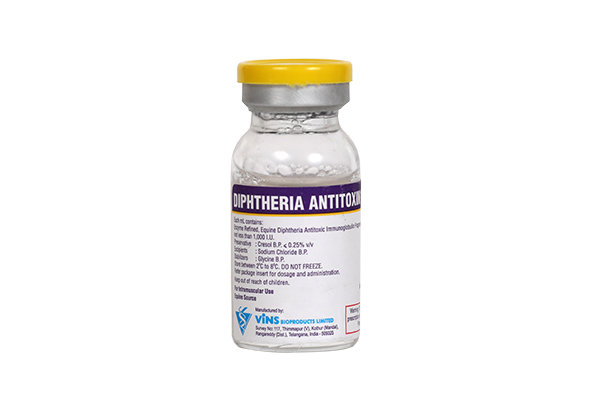
The head of mission and country representative of the World Health Organisation (WHO) in Nigeria, Dr. Walter Mulombo disclosed that the global health monitor will, on August 2, 2023, make available to Nigeria 1800 vials of the Diphtheria Antitoxin (DAT) to combat the rising incidence of the disease in the country.
Mulombo disclosed this during a joint news conference on diphtheria outbreak response organised by the National Primary Healthcare Development Agency (NPHCDA) in Abuja.
DAT is a medication used to treat diphtheria, a bacterial infection that can cause severe respiratory distress and other complications. Derived from the blood of immunised individuals, the antitoxin neutralises toxins produced by the bacteria, preventing further damage to the body. The number of vials required for treatment varies based on the severity of the infection and the patient’s condition. The arrival of 1800 vials might indicate a larger outbreak or the need for stockpiling in emergencies.
According to Mulombo, WHO was requested by the Nigeria Centre for Disease Control and Prevention (NCDC) to procure DAT and Erythromycin IV for the management of diphtheria cases. Erythromycin IV is intravenous administration of the antibiotic medication erythromycin, used to treat various bacterial infections. It inhibits bacterial growth, aiding the body’s immune system in fighting the infection.
The expected 1800 vials of DAT and erythromycin will be crucial in saving lives and reducing complications in affected patients. Prepositioning these health commodities in the country is essential for quick deployment to states in need.
In response to the outbreak, the NCDC requested WHO’s support to deploy 18 rapid response teams to Bauchi, Kaduna and Katsina states. The deployment process is underway, involving a mix of the workforce from the Nigeria Field Epidemiology and Laboratory Training Programme (NFELTP) and WHO staff.
The WHO team is actively working in Yobe and Kano states to improve surveillance at health facilities and the community level. They are supporting active case searches and the establishment of decentralised isolation centers, as per the states’ ministries of health request and NCDC guidance.
The WHO is also assisting the Federal Capital Territory (FCT) with an integrated active case search and household sensitisation, optimising the opportunity for fractional inactivated polio and non-bivalent oral polio vaccine type 2 routine immunisation intensification campaign. Additionally, WHO is supporting the procurement of laboratory commodities to expedite result turnaround time for early case definition and management.
In collaboration with NPHCDA, WHO is organising the first phase of vaccination targeting children aged 0 to 14 years in four states, with WHO providing support amounting to N92 million.
The chief of health in Nigeria for UNICEF, Dr. Eduardo Celades expressed concern over Nigeria having the second largest number of zero-dose children in the world, totalling 2.2 million. He stressed the need to reach more children with immunisations, emphasising that the COVID-19 pandemic has contributed to a resurgence of diphtheria in the country. Celades urged the government, traditional leaders, religious leaders, and the community to collaborate in ensuring every child receives the relevant childhood vaccines as per the national immunisation schedule.

